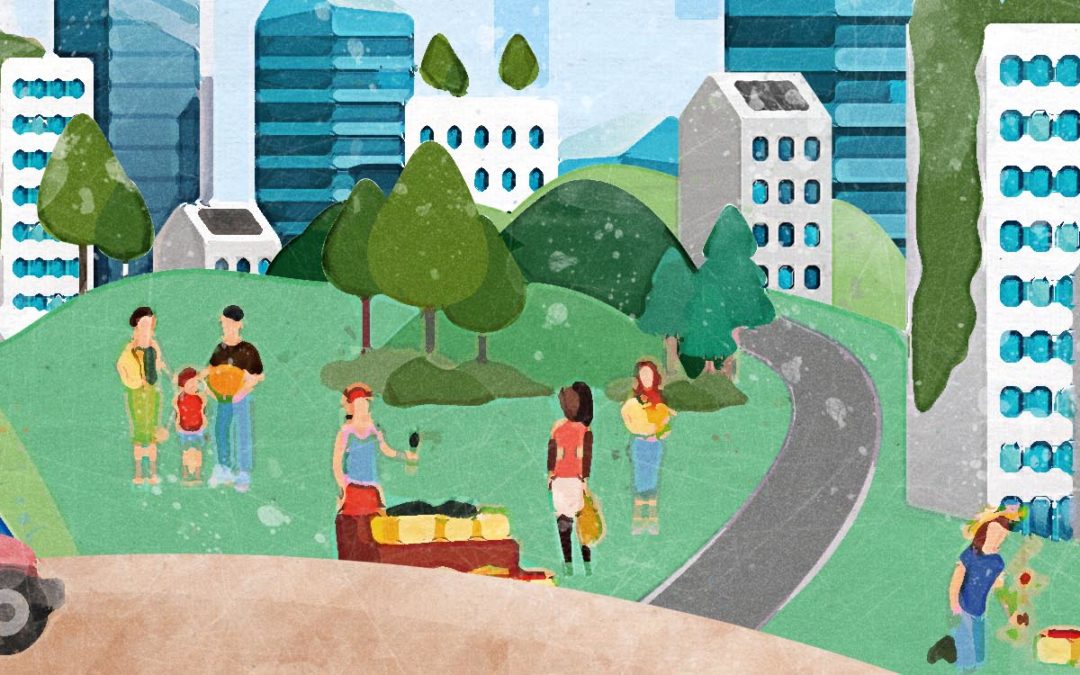Global food production has a significant impact on the atmosphere and ecological carrying capacity. The City of Tampere, Tampere University of Applied Sciences, Ahlman and Ekokumppanit received over a million euros of EU funding for the Fostering the Urban Food System Transformation Through Innovative Living Labs Implementation (FUSILLI) project. The international project leads European urban areas towards healthy, sustainable and safe food systems and supports related urban policy.
Along with urbanisation and fast population growth, the global demand for food is expected to even double by 2050. Most of all produced food is consumed in cities and thus their food systems have to be made more effective and sustainable.
The European FUSILLI project supports the participating cities and urban areas in global food system challenges. They are responded to by strong urban cooperation, dissemination of information and reciprocal learning.
Towards sustainable urban food systems
The project will build an innovative model which enables cities to move towards healthy, sustainable, safe, participatory, equal and cost-effective food systems and related urban policy. The model has to be implementable and reproducible in any city.
“We aim at involving cities’ political decision-makers, educational institutions, students, researchers and citizens in active development of the food system,” Project Manager Karoliina Tuukkanen from the City of Tampere tells about the project background.
The urban policy has to develop effective use of food in the whole value chain in accordance with the four focus areas of EU’s FOOD2030 policy. The focus areas are nutrition for sustainable and healthy diets, climate-smart, environmentally sustainable and resource-efficient food systems, circularity and innovation and empowering communities.
Living labs at the heart
Each city creates living labs which work as open innovation environments for companies and communities working with food production, distribution, processing and food waste.
In Tampere, the living labs aim at concretely solving how to implement sustainable development innovations at all levels of the food system: production, processing, distribution, logistics, consumption and food waste.
Tampere University of Applied Sciences has strong experience in living lab activities and reaching of regional actors.
“We use our competence widely. At the planning phase, we already considered tourism and restaurant fields, production of local food, carbon-neutral food chains, rising technologies and latest business development trends from the viewpoint of urban food systems,” sums Senior Lecturer Mikael Lindell from TAMK’s Proakatemia.
“This gives us a tremendous possibility to develop the food system together with TAMK Catering Studio, hospitality management students and the whole network.”
Wild future idea
A diversified bed cultivation of 1,000 square metres will be established at Ahlman. It will be based on the biointensive cultivation method. Citizens will be guided in using the method and a food club will be established.
“Regenerative farming principles play a key role. The no-till method and manure compost keep the soil living and nutrient-rich,” tells Project Specialist Oskari Pikkarainen.
According to him, a garden where every square metre is used efficiently works as a scalable example for both professional and non-professional gardeners.
Food is also produced in urban areas
Tampere Region has good examples of companies which produce food in urban areas. Several food production companies work in Tyyppaamo Demo Lab in Hiedanranta, Tampere.
“A good example is Meluta Ltd, which tests robotic cultivation and its business possibilities,” Tuukkanen tells.
“In addition, Blokgården considers gamification of urban cultivation and new ways of reusing the cultivation box soil. DTS explores how restaurants’ organic waste can be used in regional food production. These enterprises together with Netled, which specialises in vertical cultivation, are new representatives of urban food production. More such companies will probably be seen in the future.”
Tuukkanen reminds that an objective of the FUSILLI project is to consider how the food production chain could be made more sustainable.
There are 32 partners in the Horizon2020 project. In addition to Tampere, there are cities from Spain, Italy, Holland, Norway, Denmark, Germany, Turkey, Ukraine, Greece, Luxemburg, Croatia and Portugal. The nearly €13-million project started in January 2021.
Text: Hanna Ylli
Contact:
Project Manager
Karoliina Tuukkanen
City of Tampere
karoliina.tuukkanen@tampere.fi
